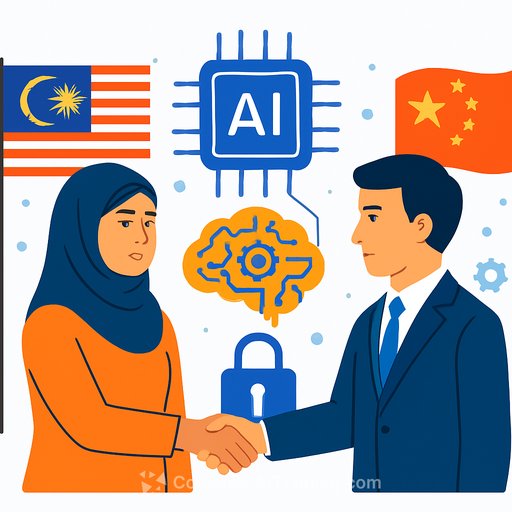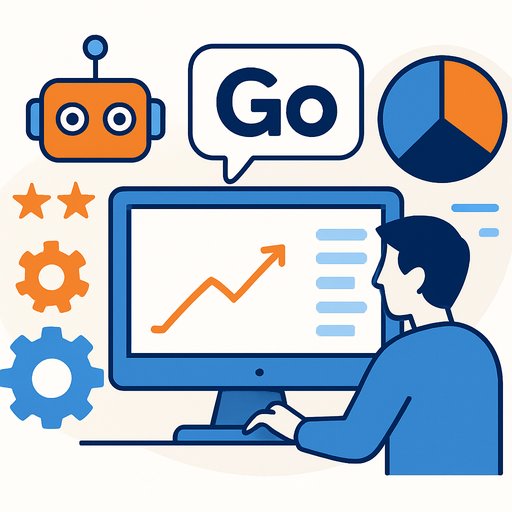UAE Partners With Africa on $1B AI Development Plan: Practical Takeaways for Builders and CTOs
The United Arab Emirates has committed $1 billion to accelerate artificial intelligence across Africa. The plan prioritizes research hubs, startup funding, and large-scale skills training for young professionals. For teams building products and infrastructure, this opens doors to capital, compute, and cross-border collaboration.
Initial focus areas include agriculture, healthcare, energy, financial services, and public governance. Partnerships between African universities and UAE technology institutions will support long-term knowledge exchange. The aim is clear: reduce digital inequality and bring more African talent and companies into the global AI market.
Where the Investment Will Flow
- AI research hubs: New centers linked to universities and tech parks, with access to GPUs, cloud credits, and shared data infrastructure.
- Startup support: Grants, investment funds, and incubation programs for AI, robotics, automation, and data products.
- Skills training: Thousands of scholarships and upskilling programs in MLOps, data engineering, responsible AI, LLM fine-tuning, and product delivery.
- Sector pilots: High-impact use cases in crop forecasting, clinical decision support, grid optimization, fraud prevention, and digital public services.
What This Means for Engineers and Product Teams
- Models for local context: Expect demand for NLP, speech, OCR, and vision that support African languages and on-the-ground conditions.
- Deploy for constraints: Design for intermittent connectivity and cost-sensitive inference using quantization, distillation, and edge-friendly architectures.
- Data responsibility: Build consent-driven pipelines, clear data lineage, and privacy controls that meet national data protection laws.
- MLOps at scale: Standardize CI/CD for models, monitoring, drift detection, and audit trails from day one.
- Interoperability: Use open standards and stable APIs to integrate with government systems and regional partners.
Opportunities for Startups
- Prove ROI fast: Lead with measurable outcomes-yield gains, reduced diagnostic time, lower energy loss, better KYC accuracy.
- Be procurement-ready: Prepare security documentation, compliance checklists, data processing agreements, and service-level terms.
- Plan your compute: Show a clear path for training, fine-tuning, and serving models, with cost controls and fallback options.
- Build local partnerships: Pair with universities, hospitals, utilities, and ministries to secure pilots and datasets.
Policy and Partnership Context
The initiative fits the UAE's push to lead in AI while deepening cooperation with African governments. Expect work on digital governance, standards, and shared infrastructure to accelerate. This could give African stakeholders more influence in setting global AI norms and practices.
Expected Impact
Developers should see more funded pilots, better access to compute, and faster adoption of AI across key sectors. Startup ecosystems will benefit from new capital and talent pipelines. Over time, this can boost job creation, local IP, and export-ready products.
How to Prepare Now
- Map your product to a priority sector and define two to three concrete use cases with KPIs.
- Audit your data flows, consent mechanisms, and retention policies; document them clearly.
- Set up observability for models (data drift, performance, bias) and keep human-in-the-loop where risk is high.
- Optimize for cost: right-size models, explore mixed precision, and benchmark inference on CPU vs GPU vs edge.
- Create partnership kits: a one-pager, a demo, case studies, and a pilot plan with timelines and success metrics.
- Upskill teams on MLOps, LLMOps, and responsible AI practices. Consider targeted training to speed onboarding.
If you need structured upskilling paths by role, see Complete AI Training: Courses by Job.
Summary Snapshot
- Investment: $1 billion
- Investor: United Arab Emirates
- Focus: AI hubs, startups, skills training, digital cooperation
- Beneficiaries: African nations, tech innovators, youth
- Expected impact: Economic growth, skills development, stronger innovation pipelines
FAQs
1) Which sectors benefit most?
Agriculture, healthcare, finance, education, energy, and public services.
2) How will African youth benefit?
Training programs, scholarships, and expanded career paths across data, engineering, and product roles.
3) Will startups get access to funding?
Yes. Grants, investment vehicles, and incubators are a core part of the plan.
4) Why is the UAE investing?
To strengthen partnerships, support development, and extend its position in AI through collaboration.
5) When does it start?
Phased implementation with African governments and institutions over multiple stages.
Your membership also unlocks:






